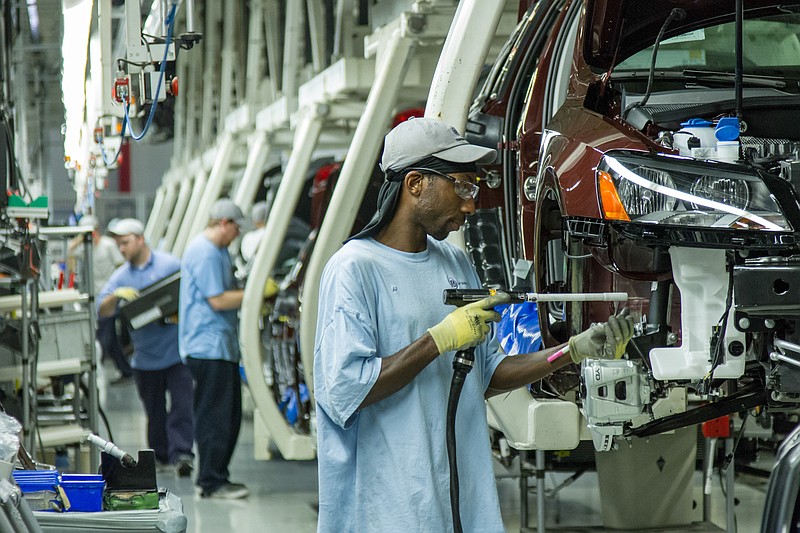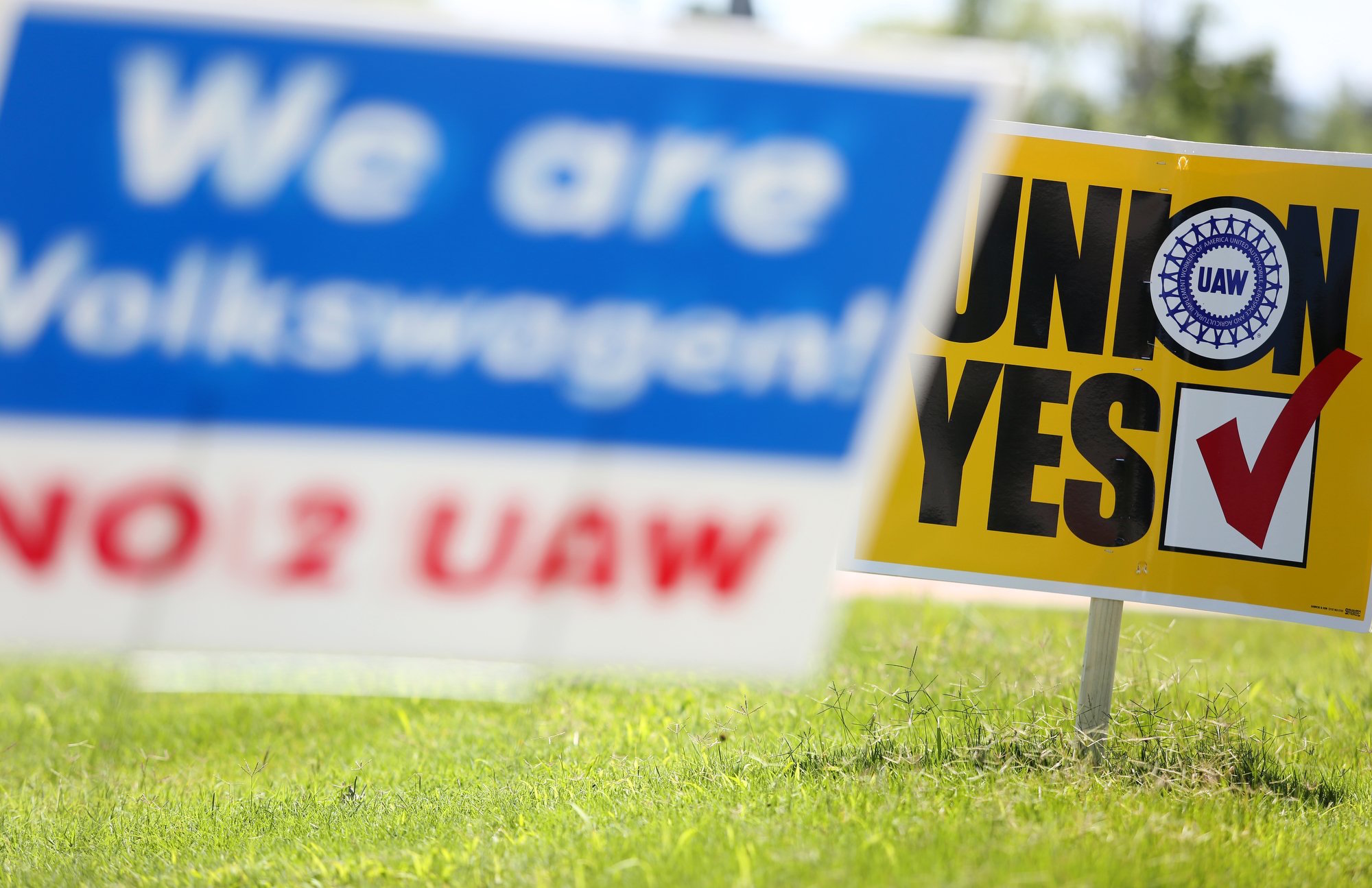Tennessee officials' brag that the state is "good" for business. They also boast that the failure of a unionization vote last week at Volkswagen continues to make us "good" for business - an assertion that is as sad as it is misleading.
Consider this Nashville Business Journal headline from July 2018: "Tennessee no longer a top 10 state for business." The story states, "The Volunteer State ranked No. 13 on CNBC's 2018 list of 'America's Top States for Business,' down from No. 9 in 2017."
Then there's this from Tennessee Secretary of State Tre Hargett's website and 2019 May Tennessee Quarterly Business and Economic Report: "First quarter growth in new entity filings suggests sustained economic growth, at least in the short run. There were 12,512 new entity filings representing a 9.0% increase over the same quarter last year. [But reading further] There were 2,751 dissolutions filed in the first quarter of 2019, more than doubling the dissolution count from the first quarter of 2018."
Did we mention that all those numbers were collected well before mention of this unionization effort?
Did we mention that the unionization effort failed by a mere 57 votes among 1,609 votes cast?
Here are some other interesting points.
» Volkswagen responded to United Auto Workers petition in mid-April for a union election with a number of improvements in working conditions, including a 50-cent-a-hour raise effective July 1, to boost the starting pay for VW production workers in Chattanooga to $16 an hour - likely still the lowest pay of any automaker in the U.S.
» Volkswagen's top wage of $23.50 is well above the median in Chattanooga, but roughly 20% below what experienced workers make at unionized plants of automakers such as General Motors and Ford, according to The New York Times.
» The U.S. Bureau of Labor on Jan. 18 reported that nationally: "Non-union workers had median weekly earnings that were 82% of earnings for workers who were union members ($860 versus $1,051).
» That same Labor Department reports that South Carolina and North Carolina had the lowest union membership (2.7% each). But that lowest union membership doesn't really seem to matter much on the "Top States for Business" listing. South Carolina ranked 30 on that list (Spartanburg's BMW plant also has among the lowest-paid autoworkers, according to a Center for Automotive Research study). North Carolina, with the same lowest union percentage as its sister state, beat Tennessee out on for our previous No. 9 ranking. Meanwhile, Washington, which ranks No. 2 on the "Top States for Business" list also ranks third highest in the number of its workforce, nearly 20%, in labor unions. Go figure.
Maybe Tennessee's government officials who spoke out against UAW shouldn't be trusted with economic figures any more than our president, who babbles about our "booming economy," despite May's worst jobs-added number in almost three years - 75,000 new jobs, down from 224,000 in April.
The bottom line is that unions don't make or break the economies of states. Nor do they harm a company that already has good manufacturing management.
What most hurts any economy is a workforce that is too poorly educated to do the work and too poorly paid to return much of those low wages to other local businesses such as realtors, grocery stores, restaurants, other small businesses and county tax coffers. When people have money, they spend money.
Tennessee should be welcoming unions and higher wages rather than railing against them.

